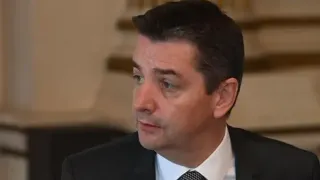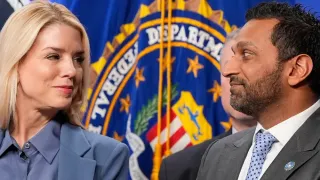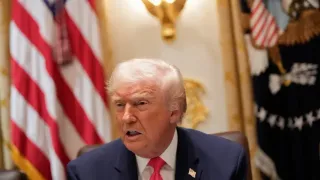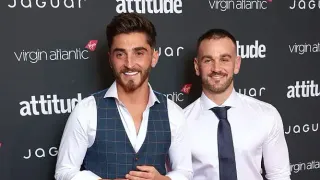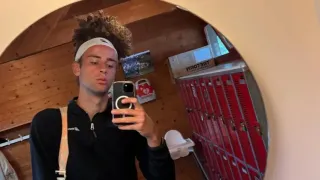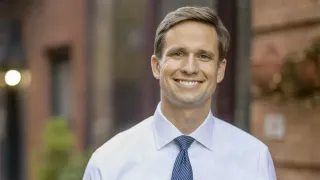
Nov 14
Grounded by Bias: Transgender TSA Officer Takes on Kristi Noem and the Federal Government
READ TIME: 4 MIN.
The security line at Washington Dulles International Airport is supposed to be about safety, not shame. Yet for Danielle Mittereder, a transgender TSA officer, the checkpoint became a battleground—not just for national security, but for basic dignity and the right to work. Danielle has filed a federal lawsuit after being barred from performing a core function of her job, alleging discrimination rooted in her gender identity and enforced by one of the country’s most vocal anti-LGBTQ+ officials: Homeland Security Secretary Kristi Noem .
Danielle joined the TSA in June 2024, in a moment when policy and reality seemed to be moving in sync: for the first time, transgender officers could conduct pat-downs for passengers matching their gender identity. Danielle was quickly recognized as “an exemplary employee,” but her trajectory was upended by a presidential pen stroke. Donald Trump’s Executive Order 14168—titled “Defending Women From Gender Ideology Extremism and Restoring Biological Truth to the Federal Government”—rolled back progress, mandating that TSA officers perform pat-downs only for passengers matching their sex assigned at birth, not their lived gender identity .
Noem, newly installed as Secretary of Homeland Security, became the order’s enforcer. Suddenly, Danielle found herself not only excluded from key job responsibilities but also barred from using restrooms corresponding to her gender identity. “She’s good at her job, she wants to go to work and do her job every day. And she’s not allowed to do it, for the sole reason that she is transgender,” her attorney told The Independent .
Danielle’s lawsuit, filed in a Virginia district court, alleges that the Department of Homeland Security and Secretary Noem violated Title VII of the Civil Rights Act by singling her out and limiting her duties solely because of her gender identity . The complaint details the emotional toll: “As a result of Defendant’s discrimination, suffered and continues to suffer anxiety, depression, fear, feelings of uncertainty, crying spells, grief, and low mood. experienced and continues to experience anger, frustration, embarrassment, and humiliation as a result of Defendant’s decision to prohibit her from doing much of her job, single her out, and stigmatize her due to her gender identity” .
For Danielle, it’s not just about missed shifts or blocked promotions—though both are real and damaging consequences. It’s about being pushed to the margins of an agency where she once felt seen. “Her chances of career progression within the agency have now been severely hampered as promotional roles would require her to conduct pat-down searches—something she is now banned from doing,” reports Paddle Your Own Kanoo .
There’s a reason this case is sparking national debate and queer outrage. At its core is a question that echoes throughout LGBTQ+ history: who gets to serve, and who gets sidelined? The TSA’s pat-down policy—now reset to “biological sex”—is a microcosm of the broader rollback of trans rights under the current federal administration, embodied by figures like Noem whose political careers are built on anti-LGBTQ+ rhetoric .
Noem’s anti-trans credentials are not new. She signed a bill banning trans student-athletes from sports that match their gender identity and ran a re-election campaign heavy on anti-trans ads, described by activists as “discriminatory rhetoric” . The executive order she now enforces is a direct extension of that agenda—one that paints transgender inclusion as “ideological extremism” and codifies exclusion into federal law.
For queer communities, especially trans people in public service, Danielle’s story is heartbreakingly familiar. The pattern repeats: Progress quietly takes root, only to be uprooted by political winds. The chilling effect is both personal and communal. When federal policy singles out transgender employees for “special handling,” it sends a clear message: your authenticity is an obstacle, not an asset.
Beyond the legal jargon and bureaucratic maneuverings, Danielle’s story is intensely human. The humiliation of being unable to rotate through jobs, the anxiety of being denied bathroom access, the frustration of having your professional identity reduced to a perceived “risk”—these are everyday indignities that add up to institutionalized shame. The complaint recounts not just professional setbacks but daily emotional wounds: “anger, frustration, embarrassment, and humiliation” .
And it’s not just Danielle. Transgender TSA officers across the country now find themselves on “limited duty,” unable to earn overtime, swap shifts, or move up the ranks. The effect is a quiet but powerful form of workplace erasure—a reminder that, for some, the cost of authenticity is paid in opportunity lost .
Danielle’s case is not just about one officer or one airport. It’s about whether federal policy will recognize transgender people as full citizens—trusted to serve, to protect, and to be themselves at the same time. The lawsuit seeks not just redress for Danielle, but a court order blocking the discriminatory practices across the agency .
As this case unfolds, it challenges us to confront the real meaning of “security.” Is it about policing bodies, or protecting dignity? For queer communities watching across the country, Danielle’s fight is a reminder that visibility is powerful—but real safety comes from belonging, not just being seen.
The next time you pass through airport security, remember that the person behind the badge might be fighting for more than your safety—they might be fighting for their own. Danielle’s courage is a call to all of us: in the face of discrimination, we don’t just demand a seat at the table. We fight for the right to serve, to lead, and to thrive—unapologetically, authentically, and on our own terms.
